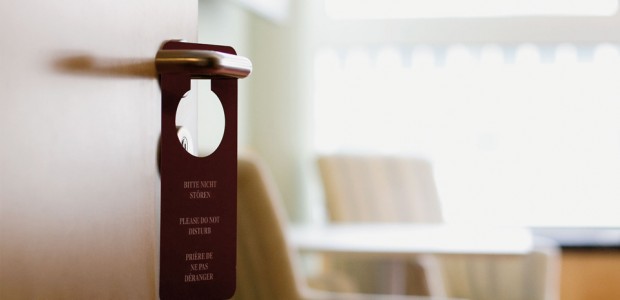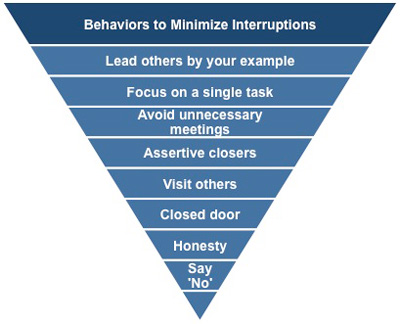Time management is always challenging, and never more so that when you’re constantly being interrupted at work. First of all, accept that interruptions are a part of life. They are going to occur. When they do, it is important to not let yourself feel thrown off track.
Click through to find out how to improve concentration.
Allow time for interruptions within your daily schedule. Don’t schedule yourself so tightly that you have no room for the unexpected. Here are a few tips on how to deal with it.
Click through to find out how to improve concentration.
The average employee spends 28% of their time dealing with unnecessary interruptions. The average manager is interrupted every 8 to 9 minutes. Trying to do the same amount of work in less time, while still dealing with distractions makes work harder and less enjoyable.
- Increase stress levels.
- Increase feelings of frustration.
- Increase effort (or at least perceived effort)
Figure out what your regular interruptions are.
Are there interruptions that happen frequently during your day? Do specific people continually seek your attention causing you to pause what you’re doing? Do you respond to all phone calls and emails immediately? Take a few minutes to jot down all the things that tend to take your focus away from your intended tasks.
Just Say No.
Some interruptions are important and unavoidable. Those are the ones you should plan for. However, some interruptions are totally unimportant and completely avoidable. Those are the ones you should stop. And the best way to do it is to just say NO.
Learning how to say ‘no’ is a lot easier than living with the consequences of always saying ‘yes’.
Share your calendar with others.
Make your schedule available to colleagues so they’ll know when you’ll have time available to meet or talk with them.
Email Management.
Email can be a huge interruption. Don’t hit “Reply All” to an email unless you need a reply back from everyone. Turn off your email notifications and only check your email at specific times of the day.
Telephone.
Use voice mail message to let people know you will return their call at a particular time during the day. Let people who answer the phone for you know that you can not be interrupted. Give them specific instructions about what constitutes and emergency.
You only have to have a couple of interruptions in the morning or afternoon and your whole day seems disrupted.
Deal with Staff .
Help the staff to understand the reason you cannot be interrupted. Give them a time at which they can get their questions and issues answered.
Prioritize your daily to-do list and train yourself to go right back to where you left off after the interruption. Don’t use it as an excuse to lose track of your focus.
Deal with colleagues, use “modified” open door policy.
Consider hanging a note on your door and alternate open and close door hours.
“Available – come on in!”
“Really concentrating – but if it’s really important…”“Working on an insane deadline – try me after X o’clock.”
Messy office
A messy office can drain you of energy. Make sure the place you are working is relatively clear of unessential materials before you start working. Schedule a cleaning time on your calendar.
The bad news is time flies. The good news is you’re the pilot.
In my personal opinion the best way to manage distractions at work is with self-discipline. Time management is a matter of self-discipline, and even more so when you’re managing interruptions. Others will respect your time only to the extent that you do. You must set the standard, and show the way. Choose to set a high standard, as your time is valuable.
How many times do you get interrupted every day at work?







